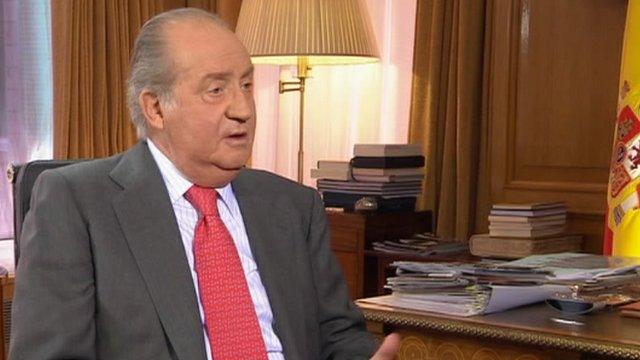Juan Carlos abdication: Last service to Spain's democracy?
- Published
King Juan Carlos abdicated in June 2014, saying his son Prince Felipe would "open a new era of hope" for Spain
After 39 years on the throne, King Juan Carlos of Spain has announced his intention to abdicate.
In the past, such events were sometimes followed by palace conspiracies, loveless marriages or succession wars.
But today they are largely peaceful affairs - unless they take place in a restless country, which Spain now is, where the economic crisis has fostered a reappraisal of the transition to democracy upon which the outgoing king built his legitimacy.
That is why thousands of people, many of them young "indignados", are planning to demonstrate in the evening in the Spanish streets, demanding the establishment of a republic.
Spain is not waging a war of succession, but instead a war of meanings - about the meaning of monarchy in a post-traditional society, and the meaning of Juan Carlos himself in Spanish history.
And it is very likely that the abdication is a move aimed at winning that war.
Standing firm
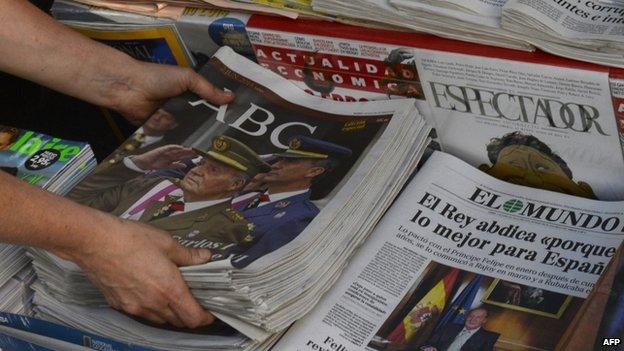
The king's decision surprised many Spaniards
Four decades ago, when he acceded to the throne, the young Juan Carlos could have hardly foreseen that things would turn out this way.
Born in exile in Rome in 1938 then married to the Greek princess, Sofia, in 1962, he was appointed by the then-dictator Francisco Franco as his successor in 1969 - five years before the latter died in his bed.
Although he had been expected to give continuity to the dictatorship, Juan Carlos I de Borbon revealed himself as a firm and shrewd ally of those who wanted Spain to become a modern democracy. That was what happened.
In such a difficult task, he worked together with Adolfo Suarez, also a member of the Francoist apparatus, who was appointed prime minister by the king in 1976.
They were not the only makers of the Transicion, but they were probably the most important ones, since they manoeuvred to change the dictatorship from within.
When confronted by a military coup in 1981, the king stood firmly on the side of democracy and his reputation was definitively established. That is why Spaniards who preferred a republic declared themselves juancarlistas.
'New faces'
However, the legitimacy he earned by steering the country through democratisation has been undermined by the events of the past decade.
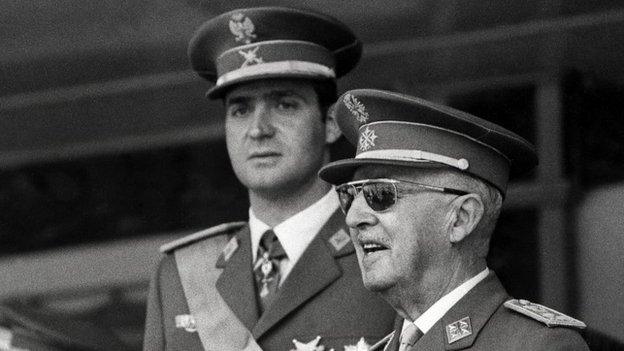
Juan Carlos (l) became king two days after the death of General Franco (r)
His son-in-law, Inaki Urdangarin, is involved in a vulgar scandal of corruption, whereas the king himself was pictured in Botswana together with an elephant he had shot.
His public persona lost gravitas just as his health deteriorated. The country started to discuss whether he should abdicate. He did not seem inclined to do so.
Yet, unexpectedly, he has done just that.
In his moving but serene TV address to the country, Juan Carlos claimed that a new generation was justly demanding a leading role.
He meant his son, the soon-to-be Felipe VI, but was also acknowledging a wider point about the need to rejuvenate and refresh Spanish institutions after a long crisis that has damaged their legitimacy, especially among the jobless young. The recent European elections have confirmed this trend.
As Spain searches for reasons to explain the deep crisis from which it still suffers, eyes have turned back to the Transicion, seen now by many as a mere pact between insiders and outsiders that did not change anything substantial.
This is a gross misconception - but surely one a new generation is entitled to. By abdicating, Juan Carlos is adding to the feeling that Spain is seeing off the Transicion. New faces are needed for a new time.
The king's exit may thus be his last service to the democracy he helped to create, and whose flaws he did not entirely escape.
However, his place in Spanish modern history should not be in jeopardy.
He looks like winning the postmodern war of succession that is being waged in the Spanish public sphere. And deservedly so.
- Published2 June 2014
- Published19 June 2014
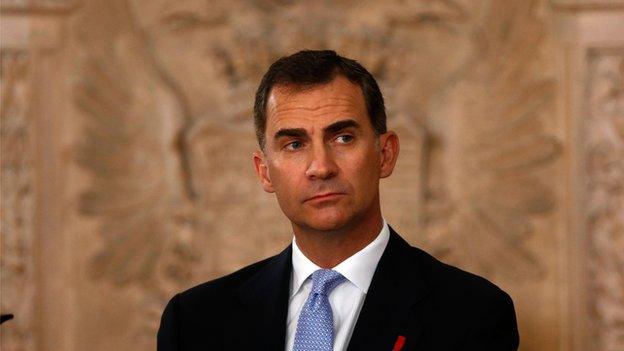
- Published2 June 2014
- Published2 June 2014
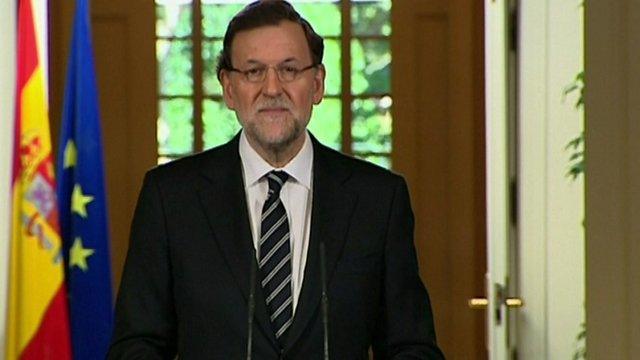
- Published19 June 2014
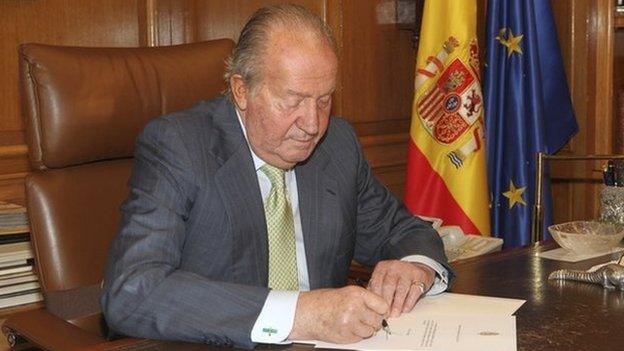
- Published5 January 2013
